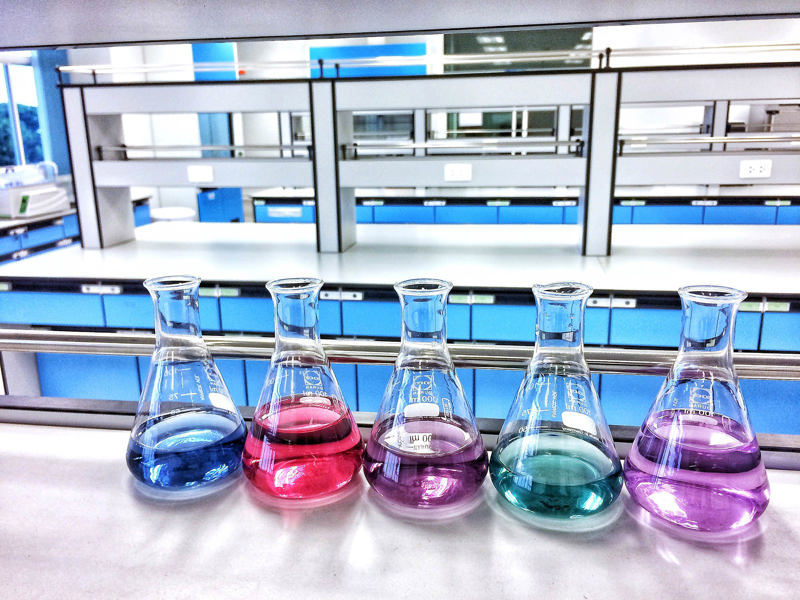Clinical waste
What is clinical waste?
 Clinical waste is the term used to describe medical waste produced from healthcare and similar activities that may pose a risk of infection.
Clinical waste is the term used to describe medical waste produced from healthcare and similar activities that may pose a risk of infection.
Healthcare Wastes arise from human and animal healthcare, i.e. from hospitals, GP surgeries, dental surgeries, veterinary surgeries etc. and have identified EWC codes.
GOV.UK: How to classify different waste types - Healthcare and related wastes
Please note: Not all healthcare wastes are clinical wastes.
Clinical waste can be hazardous to anyone who comes into contact with it. Clinical waste may contain:
- human or animal tissue
- blood or other body fluids
- excretions
- drugs or other pharmaceutical products
- used swabs or dressings
- used syringes, needles or other sharp instruments.
Clinical waste also includes any other waste that could pose a risk of infection and may be produced by:
- medical, nursing, dental, veterinary, pharmaceutical or similar practices
- investigation, treatment, care, teaching or research
- collecting blood for transfusion.
Clinical waste can be a health risk to anyone who comes into contact with it. It can be treated to be made safe.
What you must do
You must separate clinical waste and non-clinical waste.
You should assess each type of material for hazards before you segregate it, and dispose of it correctly.
Keep records of your clinical waste
You must track your clinical waste and keep records of when you receive and dispose of it. You will usually need to complete hazardous / special waste consignment.
You could track your waste using:
- a service delivery note signed by the haulage business that took your waste, with details of the type and quantity of containers collected and the date of the next proposed collection
- a waste acceptance record sheet signed by the driver and the waste site operator, with details of the type, quantity and weight of waste delivered
- a certificate of safe destruction signed by the treatment or disposal operator with details of when your waste was processed, the quantity and description of the waste.
Research alternative materials and practices to reduce clinical waste.
Consider if you can reuse or recycle your clinical waste. For example, you may be able to use it in an energy-from-waste plant.
You must ensure that clinical waste is stored and transported in suitable containers. Regularly check that storage containers are intact and that there is no risk of pollution.
Label containers adequately and securely with the name of the producer and source of the clinical waste.
If you deal with clinical waste you must ensure that you comply with your duty of care for waste.
Treat clinical waste as hazardous/special waste
All clinical waste is hazardous/special waste with two exceptions:
- medicines that are not cytotoxic or cytostatic.
- clinical wastes from municipal sources that are not associated with healthcare (for example needles and swabs from cosmetic body art or piercing).
Cytotoxic substances are harmful to cell structure and function and can kill cells. Cytostatic substances prevent or limit cell growth. These substances are found in some pharmaceutical products. You should check if your waste contains these substances.
Cytotoxic and cytostatic waste
If you produce store or transport most types of clinical waste you must comply with the hazardous/special waste regulations.
Use authorised carriers and facilities
Your waste carrier must transfer your clinical waste to a facility authorised to accept it. The facility must hold either:
- pollution prevention and control permit
- waste management licence or exemption.
If you transport your own waste, you must take it to a site that is authorised to accept it.
It is good practice to check that both the carrier you use and the facility they take your waste to are authorised to handle clinical waste. Ask to see proof of authorisation and keep this for your records.
Checking that your waste is taken to an authorised site is a good way to show that you have taken all reasonable steps to ensure your waste is being handled and disposed of legally.
If your clinical waste includes dead animals, or parts of animals, you will need to comply with animal by-products controls.
If your clinical waste contains radioactive substances or is contaminated by radioactive materials you must have the correct authorisation from your environmental regulator and comply with the radioactive substances and wastes regulations.
Radioactive materials are often used in diagnostic medical imaging and cancer treatments.
Further information on clinical waste
- GOV.UK: Safe Management of Healthcare Waste
- Health Protection Scotland: Clinical waste
- SEPA: Clinical waste
- Waste Thesaurus: SEPA guidance for coding waste An alphabetical list of waste types with their corresponding EWC codes.
SEE ALSO: Anatomical waste, sharps, healthcare guidance
